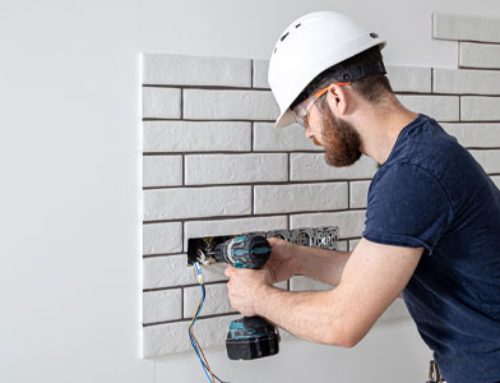Collecting dues for many homeowner associations can be a difficult task, especially when there are a large number of tenants. Fortunately, by following a straightforward procedure and examining all of your alternatives, you can make HOA assessment less of a hassle.
Dues are the principal source of revenue for an HOA. An association would be unable to perform its responsibility to maintain the neighborhood if homeowner dues were not paid. Vendor services, repairs, and maintenance are not inexpensive. When an HOA fails to collect dues, it effectively paints itself into a corner. This soon leads to a decrease in resale value and a decrease in home prices.
What is an HOA Assessment?
Every payment paid by homeowners associations to cover unexpected costs is known as an HOA assessment, sometimes known as a special assessment. At the outset of every year, the HOA board develops a strategy to determine how much it will charge per member in monthly dues.
What is an HOA Assessment Fee?
In general, the monthly HOA assessments are divided into two parts:
- The fund is sufficient to cover current-year operations. A portion of the monthly cost will be set aside to cover annual liabilities such as landscaping, snow removal, pool upkeep, insurance, and water. As an example, condo fees usually cover the expense of landscaping services such as weeding, feeding, and mowing the grass.
- The HOA fund is set up for emergencies. A portion of the monthly charge is set aside for long-term renovations, such as a new roof for the community center or a new road, or to cover the expense of constructing extra parking lots. Having a massive HOA reserve fund ensures that the HOA will be able to pay for high-cost repairs when they become due.
The Case of Unpaid HOA Assessments
Each homeowner must pay their dues on time. However, this is not the case. Some homeowners refuse to pay their dues on time or intentionally miss installments.
State HOA legislation and association declarations provide HOAs a lien on non-paying owners’ properties as security for the duty to pay dues and fees. When the assessments become delinquent, an assessment lien is attached to the property. A notification of the debt must be published in the land registry of the municipality where the community is located in order to “complete” the mortgage and notify other creditors of the statement.
When a lien notice is recorded, the HOA’s lien will be visible whenever someone searches the property’s title. If a homeowner with a lien wishes to sell or refinance their HOA, the lien must nearly always be paid first. If the assessments are not paid, the HOA will have to file a civil case against the homeowner to start “enforcing” its lien. Typically, this entails seeking a court to grant the organization permission to foreclose the mortgage. Although the procedures for recording and enforcing liens differ by state, there are nearly always some statutory requirements. Following statutory processes correctly isn’t just a matter of courtesy—HOAs must also respect residents’ due process rights.
The HOA must guarantee that unpaid HOA assessments are documented in the county land records as soon as the HOA assessments secured by the lien are paid. The duration of the release varies by state, although it is normally between 20 and 30 days.
If allowed by the association’s governing laws and state law, the cost of filing the release can normally be charged to the homeowner. At least one state requires lien releases to be recorded at the association’s expense.
Delinquent accounts can be harmful to a business or the vast majority of homeowners, HOA dues are their sole source of income. Recognizing and thanking residents who never miss a deadline is a smart method to encourage timely dues payment. To others, it may not appear to be much, yet appreciation can go a long way. However, if you have delinquent payments, here are several strategies for collecting late HOA dues:
- Demand notification. This is a common first step taken by most HOAs in the event of unpaid assessments. Homeowners may not even realize they have missed the deadline. Send out a demand notice with all of the essential information. This contains the amount owed, any late or interest fines, the number of days they are behind on their obligations, and other critical information.
- You can put up a payment plan for delinquent homeowners if your association allows it (or if your state demands it). Check your governing documents for any payment plan arrangements. If you don’t already have one, talk to your HOA manager about getting one. After all, gradual payments are preferable to none at all.
- Even after getting a demand letter or being offered a repayment schedule, some homeowners simply refuse to pay their dues. Suspending certain rights and privileges may be effective in certain instances. This involves being unable to vote on HOA issues and losing access to neighborhood amenities such as the pool and fitness facility.
- If a delinquent homeowner rents their property out, the HOA can pursue the renter instead of the delinquent homeowner. It’s worth noting, though, that this option is only available if the tenant has signed a lease agreement with the association. So, before you rush in to demand payment, make sure you read their contract.
- You may be able to sue the overdue homeowners for unpaid HOA assessments, depending on your state’s rules. Your HOA can pay the debt by deducting the amount from the homeowner’s earnings or bank account. You can even file a suit against them in a small claims court.
HOA collections make up a significant portion of HOA management. Dues are what keep the organization afloat and well-funded. Despite the fact that an HOA is a non-profit organization, it nevertheless requires revenue to operate and maintain property values. As a result, establishing a clear and consistent collecting policy is essential.





